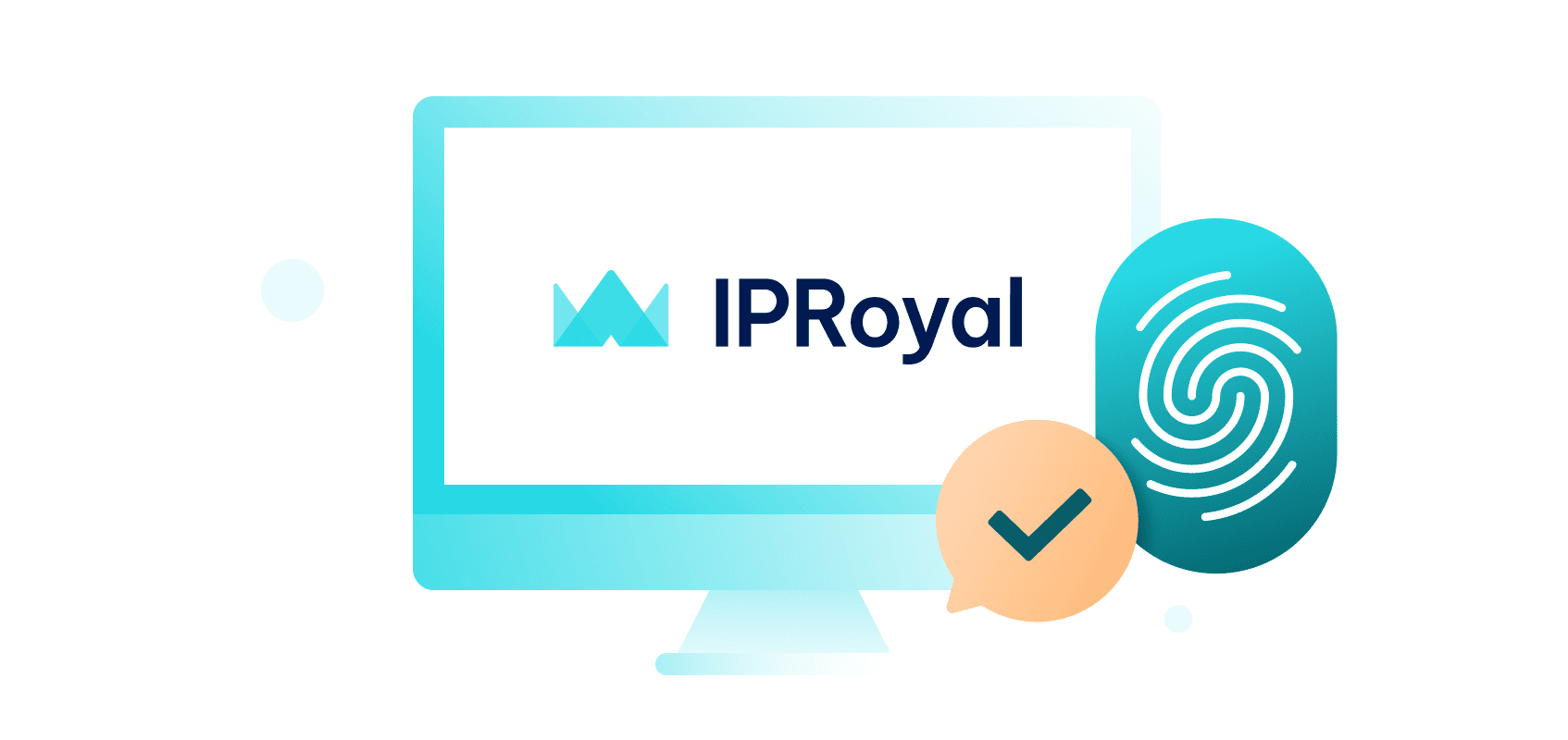How KYC Enhances Security and Trust in Proxy Networks


Justas Palekas
Last updated -
In This Article
A proxy network is designed to provide anonymity online, just what all cybercriminals want. For years, they have been using proxy services to blend in and conduct illegal activities without leaving traces. But then came KYC verification, changing the game entirely!
With identity verification in place, proxy services become more trustworthy and safe, providing peace of mind for clients. At the same time, it makes it extremely hard for malicious actors to exploit these services for nefarious activities.
To understand how, we’ll explain what KYC verification is, how it contributes to the overall security and credibility of proxy networks, and discuss IPRoyal’s KYC procedures.
What Is KYC Compliance?
KYC compliance refers to compliance with KYC (Know Your Customer) regulations. It’s a policy that involves customers’ identity verification before being able to use a specific service , in this case, a proxy service.
By knowing the customer’s identity and real use-case scenario, proxy service providers can help ensure their service is used ethically and responsibly , contributing to internet users’ safety.
KYC identification is required to identify customers, maintain customers’ risk profiles, and take any necessary safety compliance measures.
Key Components of KYC Compliance
KYC procedures involve three main components:
1. Identity verification 2. Customer due diligence 3. Automated, ongoing monitoring
Let’s discuss why each is an important part of KYC compliance.
1. Identity Verification
Just as customers know the proxy provider, it’s essential for the provider to equally understand who their customers are. It’s the basis of any relationship built on trust. This is when identity verification comes into play.
It’s a process of verifying who the customer is. It usually involves:
- Document authentication – a government-issued ID that’s checked against government databases
- Face verification – face scanning to confirm it’s the same person as the image on the provided ID
- Address authentication – proof of customer address that’s cross-checked against government-issued ID
2. Customer Due Diligence
After verifying the customer’s identity, the next step involves conducting due diligence .
It involves analyzing all available information to evaluate customers’ profiles more deeply , helping them assess any potential risks they may pose to the proxy service and how these risks could affect its operations.
3. Automated, Ongoing Monitoring
KYC procedures don’t end after checking customers and getting them onboard. It’s equally important to continue monitoring customer activity and behavior to ensure they use the proxy service as intended.

How KYC Helps Improve Security and Credibility of Proxy Networks
Considering the negative history around proxy services, one requiring you to verify your identity is a good sign. It means the service wants to improve the security and credibility of its proxy network by not allowing fraudsters and criminals on its network .
This way, they prevent service abuse, financial crimes like money laundering , and malicious usage of proxies.
How It Works
KYC verification ensures customers are who they say they are, minimizing the risk of identity theft or impersonation within the proxy network. Not only can it help prevent nefarious activities, but it can also help proxy services detect suspicious ones early, protecting both the customer and their network.
For companies and organizations using the service, it ensures their operations are safeguarded against malicious attacks. Compliance with KYC regulations ensures that proxy networks adhere to legal and regulatory standards, fostering trust and credibility among clients.
How IPRoyal Conducts Its KYC Compliance Process
As a trustworthy proxy service, IPRoyal has a strict KYC policy that applies to both new and existing customers, with no exceptions.
We want to provide ethical and secure proxy service to all customers , regardless of whether they use our residential proxies , or any other proxy type, for small-scale or large-scale business activities.
At the same time, we want to ensure the whole process is quick and easy so you can do it in just a few minutes via your phone or desktop.
More About IPRoyal’s KYC Policy
When you create an account at IPRoyal, you only have limited access to our services . Certain proxy types are unavailable, others are limited, you can’t use PayPal, and you can’t access many websites.
To access everything and take advantage of all the benefits we offer , such as API access and the ability to purchase as little as one proxy per order, you have to verify your identity .
What Documents IPRoyal Requires From Its Clients During KYC Verification
We require sending an image of a government-issued ID, such as your passport, driver’s license, or ID, and a selfie to confirm you’re not using someone else’s documents.
Again, the whole process doesn’t take much time, but it’s enough for us to ensure a secure and trusty service for our clients.
How IPRoyal Safeguards Your Data during the KYC Process
We use a third-party platform, iDenfy , which handles all identity checks and information. The platform is reliable and trustworthy, helping businesses like us streamline their operations while ensuring the security and integrity of the KYC process.
iDenfy ensures the whole KYC process and data remains private and safe, being compliant with the highest data safety standards , including GDPR (General Data Protection Regulation), ISO 27001, eIDAS, and ETSI.

How IPRoyal Ensures the Accuracy and Legitimacy of the Information Provided by Clients in KYC Checks
The third-party platform we work with, iDenfy, verifies the documents you provide using advanced algorithms that can detect anomalies or inconsistencies . In addition to document verification, the platform uses facial recognition technology to compare the photo on the submitted ID document with your selfie.
It may also cross-reference the information provided by our clients with government databases to verify its accuracy.
At the same time, we continuously monitor our network to prevent abuse and reserve the right to refuse the service based on the risk level. If we determine that your particular use case is suspicious, inappropriate, or unethical, we will refuse the service to you.
Final Words
Verifying customer’s identity before granting them access to their proxy network helps providers enhance security and trust in their services. It allows them to keep cybercriminals off their networks, preventing service abuse and safeguarding customers’ systems and sensitive data from unauthorized access, potential breaches, and negative impacts on business operations.
With IPRoyal’s thorough KYC procedures, we want to make our new and existing customers feel peace of mind when using our proxies. While verifying your identity is simple and quick, it requires ongoing efforts on our part to ensure our KYC proxy-compliant network is used for approved business cases that serve the market ethically and responsibly.

Author
Justas Palekas
Chief Marketing Officer
Since day one, Justas has been essential in defining the way IPRoyal presents itself to the world. His experience in the proxy and marketing industry enabled IPRoyal to stay at the forefront of innovation, actively shaping the proxy business landscape. Justas focuses on developing and fine-tuning marketing strategies, attending industry-related events, and studying user behavior to ensure the best experience for IPRoyal clients worldwide. Outside of work, you’ll find him exploring the complexities of human behavior or delving into the startup ecosystem.
Learn more about Justas Palekas
